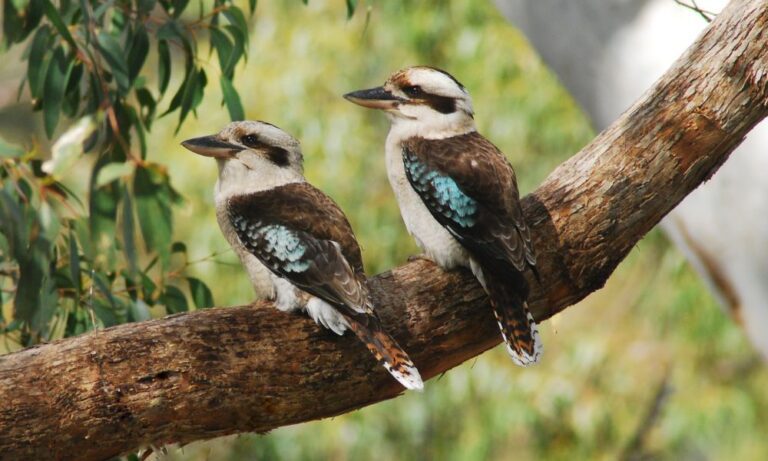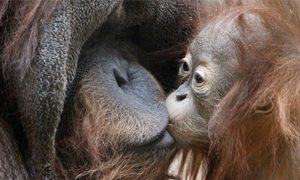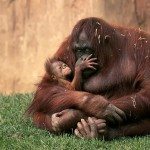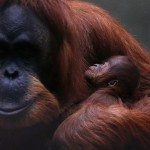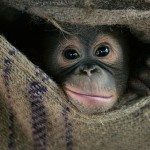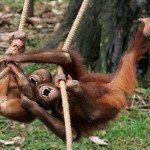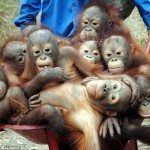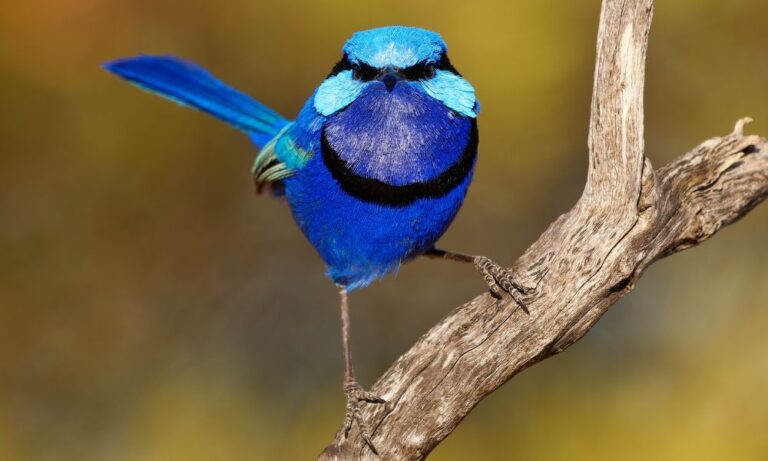- Orangutans are great apes as opposed to monkeys and as such are closely related to humans, having 97 per cent of DNA in common.
- They are the world’s largest tree-climbing mammal.
- In Malay and Indonesian, ‘orang’ means person and utan is derived from ‘hutan’ which means forest. So Orangutan literally means person of the forest.
- Their average life span is about 60 years or more. Males tend to be about 1.5 m tall, weighing on average 90-130 kgs and females about 1.2m, weighing 48-55 kgs on average.
- Males develop larger cheek pads as they reach maturity – which female orangutans apprently find very attractive.
- Gestation period for the great apes is about 8 and a half months and Orangutans usually give birth to single young and very rarely twins.
- For the first 4-6 years of their life an orangutan clings to their mother’s body as she moves through the forest to forage for food.
- Their arms stretch out longer than their bodies – over two metres from one fingertip to the other – allowing them to employ a hook-grip when swinging from vine or tree.
- Like humans, orangutans have opposable thumbs and big toes.
- Orangutans eat young leaves and shoots, insect, soil, tree bark and occasionally eggs and small vertebrates. Sixty per cent of their diet consist of fruit – like durians, jackfruit, lychees, mangosteens, mangoes and figs.
- A century ago there were probably more than 230,000 Orangutans worldwide, now there are less than 50,000 and they are only found on the islands of Borneo and Sumatra.
- Sadly, extinction of the critically endangered Sumatran Orangutans in the wild is likely to happen in the next decade. The same fate awaits Bornean orangutans.
- Habitat destruction and fragmentation is the greatest threat to the species with huge tracts of forests cleared for logging, oil palm plantations and other agricultural means.
- Orangutans are easy targets for hunters as they are large and slow moving. In some areas they are killed for food or in agricultural areas where they have destroyed when they couldn’t find food elsewhere int he forests.
- The demand for exotic pets and the trade of Orangutan skulls are also a threat to the mammals.
